- Have any questions?
- +91 90084 82284
- info@drsridharpsoncologist.com
Genomics in Cancer

Understanding PSA Levels in Metastatic Prostate Cancer
October 18, 2023
Oligometastatic Disease, SBRT, Immunotherapy, Genomics
November 30, 2023Cancer is a relentless disease that touches lives far and wide. It is an illness that affects not just individuals but entire communities. Its impact is profound, challenging the physical and emotional well-being of cancer patients and their loved ones.
According to the WHO (World Health Organization), cancer is one of the leading causes of death worldwide. As of 2021, the approximate global incidence of cancer was over 19 million new cancer cases diagnosed annually.
Amidst the struggle, Genomics emerges as a beacon of hope. Genomics is a revolutionary force, unveiling the secrets of cancer on a genetic level. It is the study of an organism’s complete set of genes, known as its genome.
“Genomics is like reading the instruction manual for an organism,” explains Dr. Sridhar PS, a renowned radiation oncologist in India. “It’s the study of all the genes in our bodies, which hold the code for how we work. Whereas, Cyberknife treatment in India amplifies precision in targeting cancer cells with cutting-edge technology.”
Continue reading as we unravel the distinctions between genetics and genomics.
Demystifying Genomics: How It Differs from Genetics
Genomics and genetics may sound similar, but they have distinct roles.
Genetics:
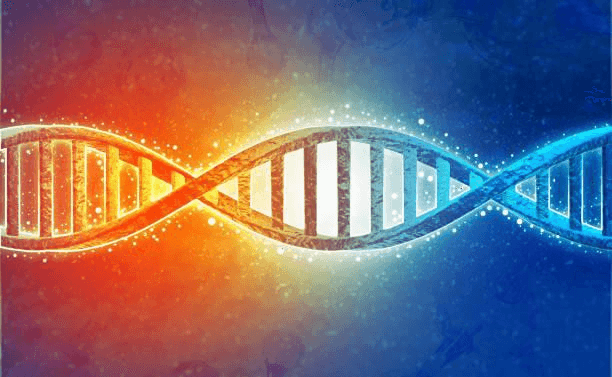
- Focuses on:
- How individual genes are inherited
- Their functions
- How they contribute to specific traits or diseases
- Studies inherited traits and characteristics passed down from one generation to the next. This includes eye color, blood type, or the risk of inheriting a specific genetic disorder.
- Involves studying a specific gene’s structure and function. This includes studying mutations of specific genes responsible for certain traits or diseases.
- Examines genetic variations within a gene to determine their effects on health or traits.
Genomics:
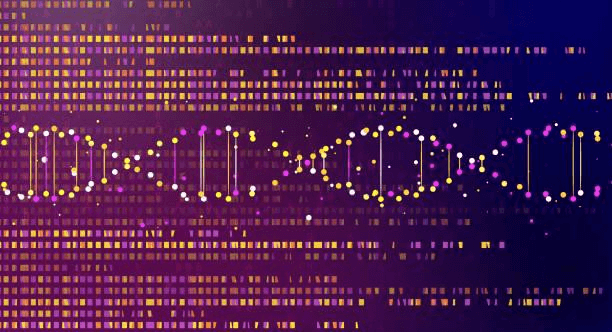
- Examines the entire set of genes (genome) that make up an individual’s DNA. This provides a holistic view of an organism’s genetic composition.
- Aims to understand the complete genetic makeup of an individual, species, or entire population.
- It goes beyond individual traits to analyze the whole genetic landscape.
- Looks at how different genes interact with each other. It aims to explore: I.
- How these interactions can influence an individual’s health
- Susceptibility to diseases
- Response to treatments
- Explores genetic variations across the entire genome. This includes variations that may be unrelated to specific traits but still have important implications for health and disease risk.
Are you curious to learn more about these differences? Please get in touch with Dr. Sridhar PS. He is constantly researching factors impacting our health and the role of genomics in cancer treatment.
Read on as we try to shed light on the fundamentals of DNA and genes in the world of cancer.
Unraveling DNA, Genes, and Their Role in Cancer
Understanding the fundamental aspects of DNA and genes is very important in oncology. DNA serves as the detailed blueprint for our biological processes.
“Think of it as a long, twisted ladder made up of building blocks called nucleotides,” says Dr. Sridhar PS, an expert in DNA therapy for cancer. “Genes are like chapters in this manual, each containing specific instructions for different bodily functions.”

Cancer occurs when something goes wrong with these instructions. Mutations or gene changes can
cause cells to grow uncontrollably, leading to cancerous growth. It’s like a typo in the manual that makes the cells disregard the “stop growing” command.
“Genes related to cancer are often compared to “on” and “off” switches,” explains Dr. Sridhar. “Mutations can turn on genes that promote cell growth and turn off genes that prevent it. This imbalance results in the formation of tumors. If left unchecked, these tumors can spread throughout the body.”
Dr. Sridhar is a cancer expert known for effective cancer care, including prostate cancer treatment in
India.
Genetic mutations are like the fingerprints of cancer. Come, let’s delve into some common genetic mutations associated with different forms of this complex disease.
Unveiling Common Genetic Mutations In Different Cancers
Cancer is a complex disease with various genetic alterations. The specific mutations involved can vary even within the same type of cancer.
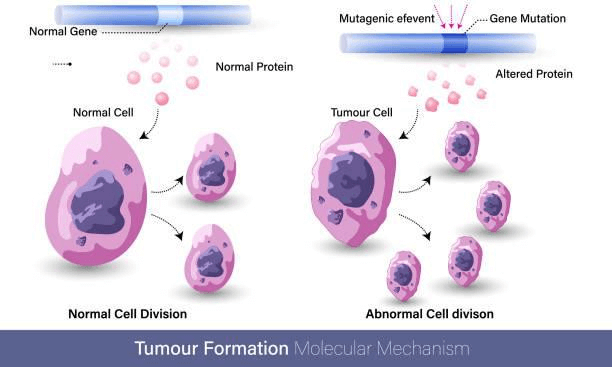
Some common genetic mutations associated with various types of cancer are:
Genetic Mutations Cancers
BRCA1 and BRCA2 Breast and ovarian cancers
EGFR and ALK NSCLC (Non-small cell lung cancer)
APC and KRAS Colorectal Cancer
PTEN and BRCA2 Prostate Cancer
BRAF Melanoma
KRAS Pancreatic Cancer
RET and BRAF Thyroid Cancer
BCR-ABL Fusion Chronic Myeloid Leukemia
TP53 Hematologic Cancers
KIT and PDGFRA Gastrointestinal Stromal Tumor
FGFR3 and TP53 Bladder Cancer
Do you suspect you have genetic mutations that may contribute to cancer development? Please visit Dr. Sridhar for genetic testing to detect if you have traces of cancer genetics.
The Role Of Genetic Testing And Genomics In Cancer Treatment
Understanding genetic mutations is essential for developing targeted therapies and personalized treatment plans.
The most common genomic-based therapies and treatment options in cancer include:
Targeted Therapy
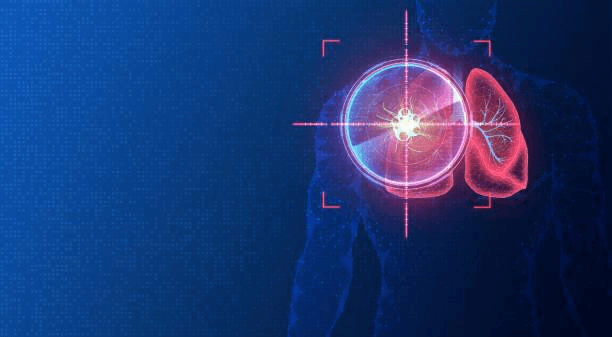
Targeted therapies focus on specific molecules or pathways responsible for cancer growth. Doctors identify genetic mutations within tumors. They then prescribe targeted drugs to inhibit these abnormalities, minimizing harm to healthy cells.
Immunotherapy
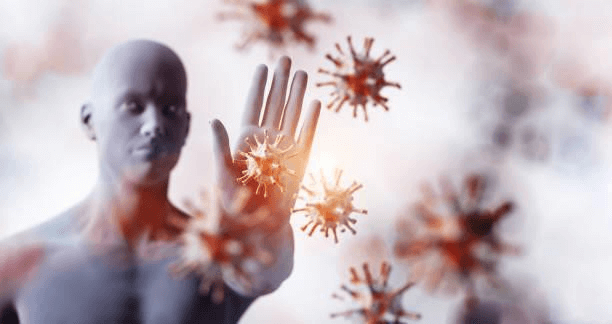
Immunotherapy harnesses the body’s immune system to fight cancer. Genomic profiling helps identify potential immunotherapy candidates by determining whether specific genetic markers exist. This approach enables the immune system to recognize and attack cancer cells effectively.
In his dedication to helping people battle cancer, Dr. Sridhar is constantly studying and analyzing genetic information. This includes understanding the complexities of:
- Prostate cancer genomics
- Lung cancer genomics
- Genomics of breast cancer
- Genes involved in pancreatic cancer
He is among the preferred oncologists for people seeking advanced cancer treatments, including lung cancer treatment in India.
Continue reading as we cover the benefits, risks, and considerations of genomics in cancer treatment.
Benefits of Genomics in Cancer Treatment
Genomics has ushered in a new era of cancer treatment, offering numerous advantages, like:
- Personalized Therapy: Genomic testing identifies unique genetic mutations in a patient’s cancer. It allows tailored treatment plans for more effective outcomes.
- Targeted Therapies: Oncologists can use precision medicine to pinpoint the specific molecular abnormalities driving the cancer. This helps minimize damage to healthy cells.
- Improved Survival Rates: Genomic-based treatments often result in higher response rates, longer remission periods, and better overall survival.
- Reduced Side Effects: By customizing therapies, patients experience fewer adverse effects. This significantly helps in enhancing their quality of life during treatment.
- Early Detection: Genomic screening enables early diagnosis, increasing the chances of successful intervention.
- Research Advancements: Genomic data fuels ongoing research, leading to the development of innovative cancer treatments and therapies.
“Incorporating genomics into cancer care represents a significant leap forward,” says Dr. Sridhar PS, an expert in genomics and cancer treatment. “It promises improved patient outcomes and a brighter future in the fight against cancer.”
Let’s see the potential risks of genomics in cancer treatment – decoding complexities for safer advancements.
Risks And Considerations Of Genomics In Cancer Treatment
Genomics offers promising benefits in cancer treatment. However, there are important risks and considerations to keep in mind:

- Cost Implications: Genomic testing and personalized treatments can be expensive. They can increase the overall cost of cancer care significantly.
- Privacy Concerns: Sharing genetic information may raise privacy issues. Individuals should be aware of how their data is handled and protected.
- Access to Technology: Not all cancer patients can access genomic testing or cutting-edge treatments. This can create disparities in healthcare.
- Ethical Dilemmas: Ethical considerations may arise in cases like incidental findings or reproductive choices based on genetic information.
- Psychological Impact: Genetic testing results can affect patients and their families emotionally and psychologically.
- Clinical Trial Participation: Some treatments based on gene therapy for cancer may only be available through clinical trials.
- Treatment Uncertainty: Genomic insights may not always result in a clear treatment path. The effectiveness of targeted therapies can vary based on factors like tumor genomics.
“Tumor genomics aims to understand the unique genomic characteristics of tumors,” says Dr Sridhar. “It can vary widely between cancer types and among individuals with the same type of cancer.”
Advances in genomics hold great promise, but a balanced understanding of the risks is crucial. Contact
CyberKnife specialist Dr. Sridhar PS for expert guidance tailored to your unique situation.
Conclusion

In the quest to conquer cancer, genomics plays a crucial role in unraveling the intricate maze of this complex disease. The benefits of genomics in cancer treatment are profound, offering personalized strategies that target the root causes of tumors. However, it’s essential to tread carefully, considering the risks and costs involved.
But do not worry! Help is here.
Seek guidance from cancer experts like Dr. Sridhar PS one of the best Radiation Oncologists in India for invaluable insights and tailored solutions.
Let’s join hands in the battle against cancer, armed with the knowledge and tools that genomics offers. Your journey to a healthier future starts with a consultation, so take that step today.
FAQ
Q. What is genomic testing for cancer?
Genomic testing for cancer involves analyzing a patient’s DNA. This helps to identify genetic mutations or alterations that may contribute to cancer development or influence treatment decisions.
Q. What are cancer genetics and genomics?
These terms refer to the study of genetic factors and genomic changes that play a role in cancer development, progression, and treatment.
Q. How is DNA used in cancer therapy?
DNA is used in cancer through gene therapy, where specific genes are modified or introduced to treat cancer. DNA-based treatments aim to target and control cancerous cells.
Q. How is genomics used in cancer?
Genomics is used in cancer research and clinical practice in various ways. They include:
- Understanding the genetic makeup of tumors
- Identifying potential treatment targets
- Personalizing cancer treatment plans based on a patient’s genomic profile
Q. Will genomics cure cancer?
While genomics has dramatically advanced our understanding of cancer, it may not “cure” cancer alone. Genomic information is crucial for developing targeted therapies. However, curing cancer requires a combination of treatments tailored to individual cases.
